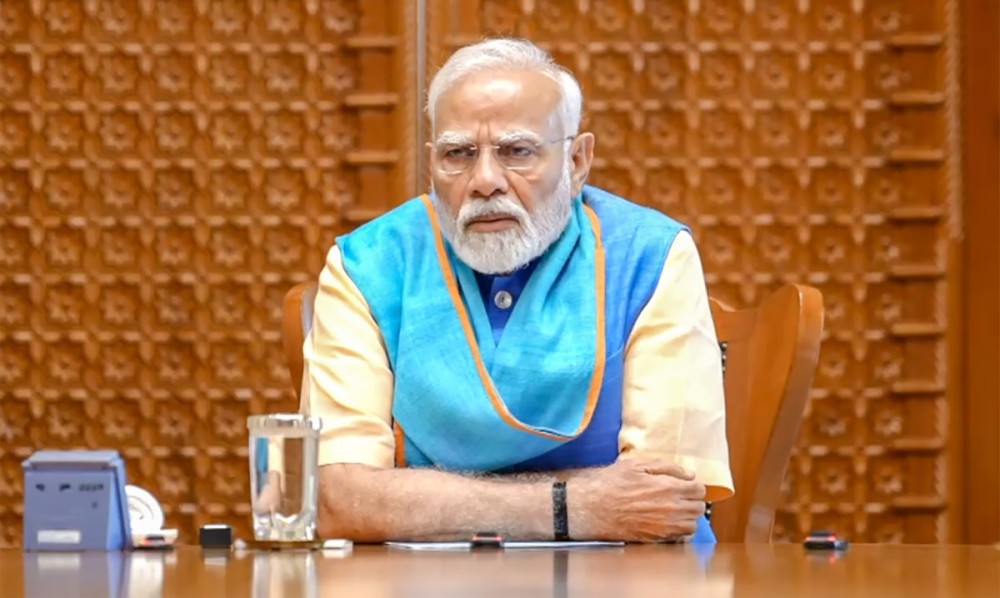In a major development towards its national security policy, the Indian government has made a big declaration. The Indian government declared that any future terrorist attack on Indian soil will be treated as an “act of war”. India warranted a decisive and forceful response to any violation of the ceasefire.
This declaration follows heightened tensions amid Pakistan and India after the deadly terror attack in Pahalgam. The incident occurred in Jammu and Kashmir, on April 22, and claimed the lives of 26 civilians, mostly tourists.
Behind the Ceasefire Agreement
Indian Foreign Secretary Vikram Misri said the ceasefire was initiated after a call by the Pakistan Director General of Military Operations (DGMO). “The Pakistan DGMO called up his Indian counterpart at 15:35,” Misri said while announcing that the ceasefire will come into effect at 17:00 hours. The two DGMOs will talk again at 12:00 hours on May 12, Misri said.
EAM Reacts
“India and Pakistan have today worked out an understanding on stoppage of firing and military action,” External Affairs Minister S Jaishankar posted on X. “India has consistently maintained a firm and uncompromising stance against terrorism in all its forms and manifestations. It will continue to do so,” he further wrote.
India’s Retaliatory Strikes
In a retaliation to the deadly Pahalgam terror attack, Indian forces launched precision air strikes on May 7. This strike targeted terror launchpads in Pakistan and Pakistan-occupied Kashmir (PoK). According to top government sources, these strikes were carefully planned to minimize civilian casualties and focused solely on military infrastructure and terrorist posts.
Following the strike India also suffered retaliatory damage, with four key Indian Air Force bases reporting limited damage from Pakistani counter-attacks. These include Udhampur, Pathankot, Adampur, and Bhuj. Following this, India hit six Pakistani airbases, including Rafiqui, Murid, Chaklala, Rahim Yar Khan, Sukkur, and Chunia.
High-Level Security Meeting
Amid the rising tensions Prime Minister Narendra Modi chaired a high-level security meeting. The meeting included Defence Minister Rajnath Singh, National Security Advisor Ajit Doval, and the chiefs of the armed forces to assess the evolving situation.
A video of the meeting was released on social media. The video was released to reassure the public and underscore the government’s proactive stance.
India’s Legal Stand Under International Law
In coordination with international norms, India is justifying its actions under Article 51 of the UN Charter. This allows self-defence in the event of an armed attack. While the UN Charter (Article 2(4)) generally prohibits the use of force, India’s position reflects a firm stand against cross-border terrorism. It aims to redefine red lines in the subcontinent.
International Mediation and Diplomatic Support
US Secretary of State Marco Rubio posted on X saying “India and Pakistan have agreed to an immediate ceasefire and to start talks on a broad set of issues at a neutral site”. “I am pleased to announce the Governments of India and Pakistan have agreed to an immediate ceasefire and to start talks on a broad set of issues at a neutral site. “We commend Prime Ministers Modi and Sharif on their wisdom, prudence, and statesmanship in choosing the path of peace,” he wrote.
Over the past 48 hours, @VP Vance and I have engaged with senior Indian and Pakistani officials, including Prime Ministers Narendra Modi and Shehbaz Sharif, External Affairs Minister Subrahmanyam Jaishankar, Chief of Army Staff Asim Munir, and National Security Advisors Ajit…
— Secretary Marco Rubio (@SecRubio) May 10, 2025
Echoing this sentiment, US President Donald Trump took to X to announce that India and Pakistan have agreed to a “full and immediate ceasefire” under the mediation of the United States.
— Donald J. Trump (@realDonaldTrump) May 10, 2025


